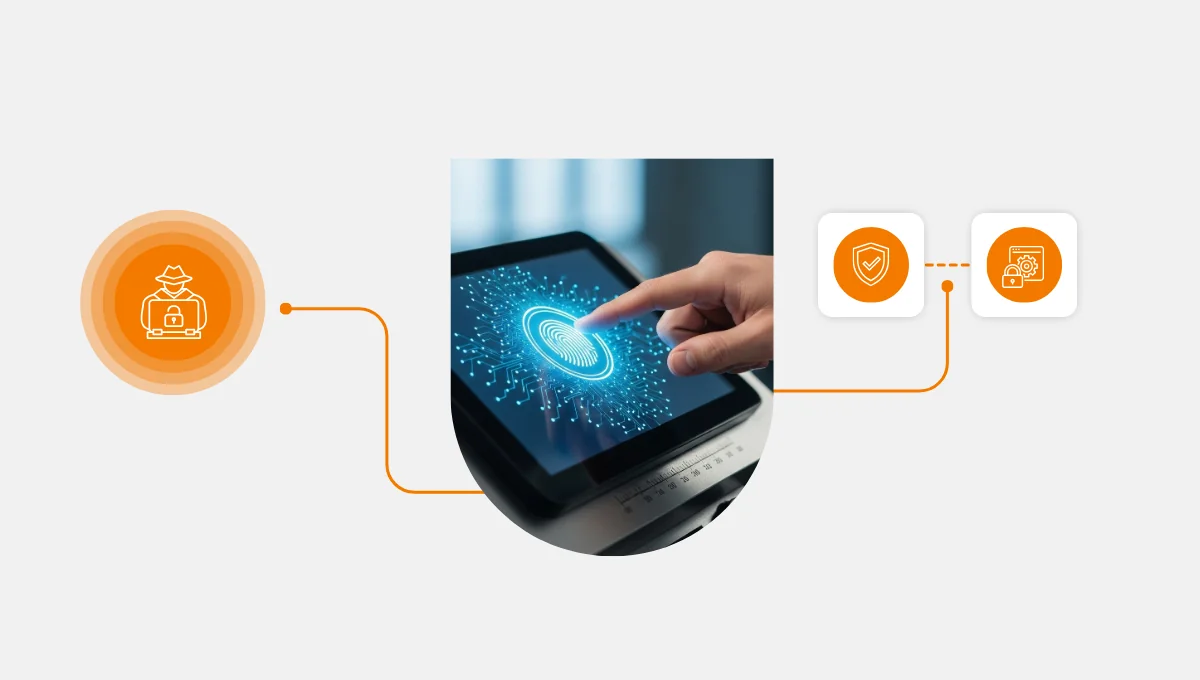Have you ever contacted customer service and felt like a robot was on the other side of the line? Interacting with a company that doesn’t seem to care about your concerns or needs can be frustrating. What about an experience where the call center agent was kind, understanding, and genuinely interested in helping you? This representative likely used empathy in their customer service approach while using Call Center Studio to manage the interactions. In this article, we’ll explore the importance of empathy in customer service, including its benefits and tips for implementing it in a contact center.
What Is Empathy in Customer Contact Service?
Empathy, in the context of customer service, is the ability of the service provider to understand and relate to the customer’s emotions, thoughts, and feelings. It involves putting oneself in the customer’s shoes and seeing the situation from their perspective. Empathy helps build trust and rapport with customers and as a result, creates a positive customer experience. Empathetic customer service agents provide emotional support to customers, which both reassures customers and helps to resolve their issues effectively.
Benefits of Using Empathy in Customer Service
Using empathy in customer service has numerous benefits for businesses. Some of these benefits include:
1. Helps Build Trust
Empathy in a contact service center can help build a positive relationship with the customer. When customers feel heard and understood, they are more likely to feel satisfied with the service they receive. Demonstrating empathy shows the customer that their concerns are valid and that your company cares about finding a solution that meets their needs. This can lead to increased customer loyalty and a positive brand reputation, as customers are more likely to recommend a company that provides them with a positive customer experience.
2. Helps Diffuse Difficult Situations
Using empathy in customer service can help to diffuse a potentially difficult situation and prevent it from escalating. By acknowledging the customer’s emotions and responding with empathy, you can support them to keep calm and help them to find a solution to the problem. This can create a more positive interaction and prevent negative reviews or complaints.
3. Leads to Customer Satisfaction
Using empathy in a contact service center lets customers know they are carefully listened to, which increases customer satisfaction. Which again can lead to positive word-of-mouth recommendations. Customers are also more likely to forgive mistakes or issues that can arise if they feel the company has demonstrated empathy and taken steps to address their concerns.
4. Leads to Employee Satisfaction
Empathy in customer contact service can also improve employee satisfaction and morale. Employees are more likely to feel valued if they are encouraged to use empathy in their customer interactions. This can improve job satisfaction, increase motivation, and decrease turnover rates. By creating a culture of empathy within your organization, you demonstrate that you value your employees and their contributions to the company.
5. Helps Uncover Underlying Issues
Another benefit of using empathy in customer service is that it can help uncover underlying issues that the customer may be experiencing. By actively listening to the customer and asking follow-up questions, the customer service representative can better understand the customer’s needs and identify any underlying issues. This can result in a more comprehensive solution that meets customers’ needs and improves their overall experience.
6. Helps Reduce Customer Churn
Empathy can help reduce customer churn by addressing customer concerns and providing personalized solutions. When customers contact customer service with an issue or complaint, they want to feel that the customer experience call center agent is doing everything possible to address the issue. By delivering personalized solutions that meet the customer’s needs and improve their experience, representatives can prevent customers from becoming frustrated and reduce the chance of a customer leaving for a competitor.
7. Leads to More Sales
When customers feel that a company cares about their needs and are willing to go the extra mile to ensure their satisfaction, they are more likely to continue doing business with the company and potentially increase their spending over time. Furthermore, empathetic customer service can result in positive word-of-mouth marketing, attracting new customers and increasing revenue.
Tips for Employing Empathy in a Contact Center
Empathy is an essential component of successful customer service, and there are several tips that contact center representatives can use to employ empathy effectively:
- Active Listening: One of the most important ways to show empathy is through active listening. Representatives should focus on what the customer says and ask follow-up questions to understand the situation better. They should avoid interrupting the customer and give them enough time to express their thoughts and feelings.
- Using Positive Language: The language customer care representatives use can significantly impact the customer’s experience. Representatives should use positive language to convey empathy and show they care about customer needs. Phrases such as “I understand how frustrating that must be” and “I’m sorry for the inconvenience” can be particularly effective.
- Putting Yourself in the Customer’s Shoes: When representatives are dealing with a customer, it’s important to put themselves in the customer’s shoes. This means understanding the customer’s perspective and acknowledging their feelings. By doing so, representatives show the customer that they understand them.
- Taking Responsibility: If there has been a mistake or issue with the product or service, representatives should take responsibility for it. Taking ownership of the situation can help build trust and show customers that the company cares about their satisfaction.
- Following-Up: After resolving a customer issue, representatives should follow up with the customer to ensure their satisfaction. This can help build long-term relationships and create a favorable experience for the customer.
- Providing Emotional Support: In some cases, customers may be going through a difficult time, and representatives can provide emotional support by expressing concern and showing empathy. Customer center agents can also provide resources or referrals to assist the customer in handling their situation.
- Training and Feedback: Providing call center technology training and feedback to representatives is essential for ensuring that empathy is employed consistently and effectively. Managers should provide regular call center studio training sessions and offer feedback to help representatives improve their skills.
Conclusion
Empathy is a crucial aspect of customer service that helps to create positive customer experiences and build long-term customer relationships. Companies who prioritize empathy in their customer service approach are more likely to have satisfied and loyal customers. Contact center agents can demonstrate empathy by actively listening to customers, using empathetic language, practicing patience, and offering personalized solutions. By integrating empathy into their cloud call center software strategy, companies can foster better customer relationships and ultimately drive business success.






